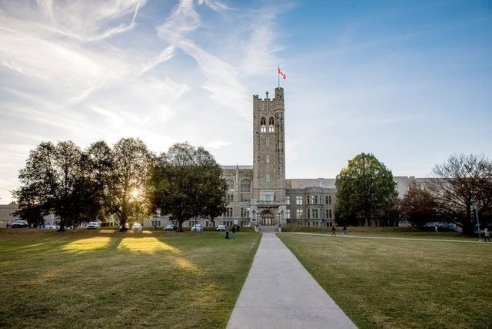Overview
In its literal sense, boarding means ‘accommodation with meals’. This contrasts with ‘day’ schools which require students to commute from home to campus daily. In a boarding school, students live on campus during term time in accommodation adjoining teaching facilities. Meals are prepared for them, which are to be had together at fixed times in a communal dining hall.
A distinction needs to be made, however, between schools with a dormitory and those which are genuinely ‘boarding schools’. A thorough integration of living with learning, rather than the mere provision of lodging and catering, is what distinguishes the latter from the former. The social aspects of boarding are as indispensable a part of education as the academic curriculum.
Students
Taking form in medieval Europe, boarding schools have had a long history of providing all-rounded education, and continue to educate some of the world’s most outstanding students. ‘Boarders’ refer to students who live at a boarding school. They lead an academic life based on the expectations and rules of communal living. It is not an exaggeration to say that boarders define the character of their school.
For many, going to boarding school means living away from home for the first time. This is a lesson in independence, as well as self-discipline as students begin to take charge of their own affairs. Spending most of their time with fellow students from near and far helps improve their social skills and broaden their horizons. Leadership education is, implicitly or explicitly, an aim shared by many boarding schools.
Setting
Boarding schools are more often seen in rural areas. One rationale behind this is to create a safe learning environment, relatively isolated from the hustle and bustle of urban life. As such, boarding school campuses are generally self-contained, comprising not only classrooms and bedrooms but also sport, art and recreational facilities. Another benefit of a rural setting is easy access to the countryside, enabling the appreciation of nature to become one of the students’ learning outcomes.
The house system
At many schools, students are allocated to one of the boarding ‘houses’ upon enrolment. A lot of socialising is organised around ‘houses’ – each may have its own schedule of activities – which readily develop distinctive sets of characters and traditions. Healthy inter-house competition is encouraged on occasions such as sport events. Moreover, a ‘house points’ mechanism can be in place to incentivise good learning attitudes and behaviour, and discourage those that are poor.
Pastoral care
For the most part, boarding accommodation is built to comply with stringent health and safety standards. In addition to teachers, a dedicated team of staff works on site to look after students’ personal, academic and social needs. In a typical case, each boarding house is headed by a ‘housemaster’ who supervises the living arrangements and gives counsel on any issues. On a less formal basis, peer support is provided through mentoring by senior students. A nurse would also be accessible in the case of illness.
The current state of boarding education in Japan
Boarding is still a relatively new, if not foreign, concept to Japanese students and parents. Most primary and secondary education institutions in the country are day schools. There are a handful of boarding schools teaching the national curriculum in Japanese; those teaching an international programme in English are even rarer. The benefits of a boarding education are, therefore, yet to be realised on a larger scale in this safe and beautiful country.

 Application
Application
 Brochure
Brochure
 Events
Events
 Summer School
Summer School















_R.jpg)

_R.jpg)
床壁仕上完了_(3)_R.jpg)
_R_(2).jpg)